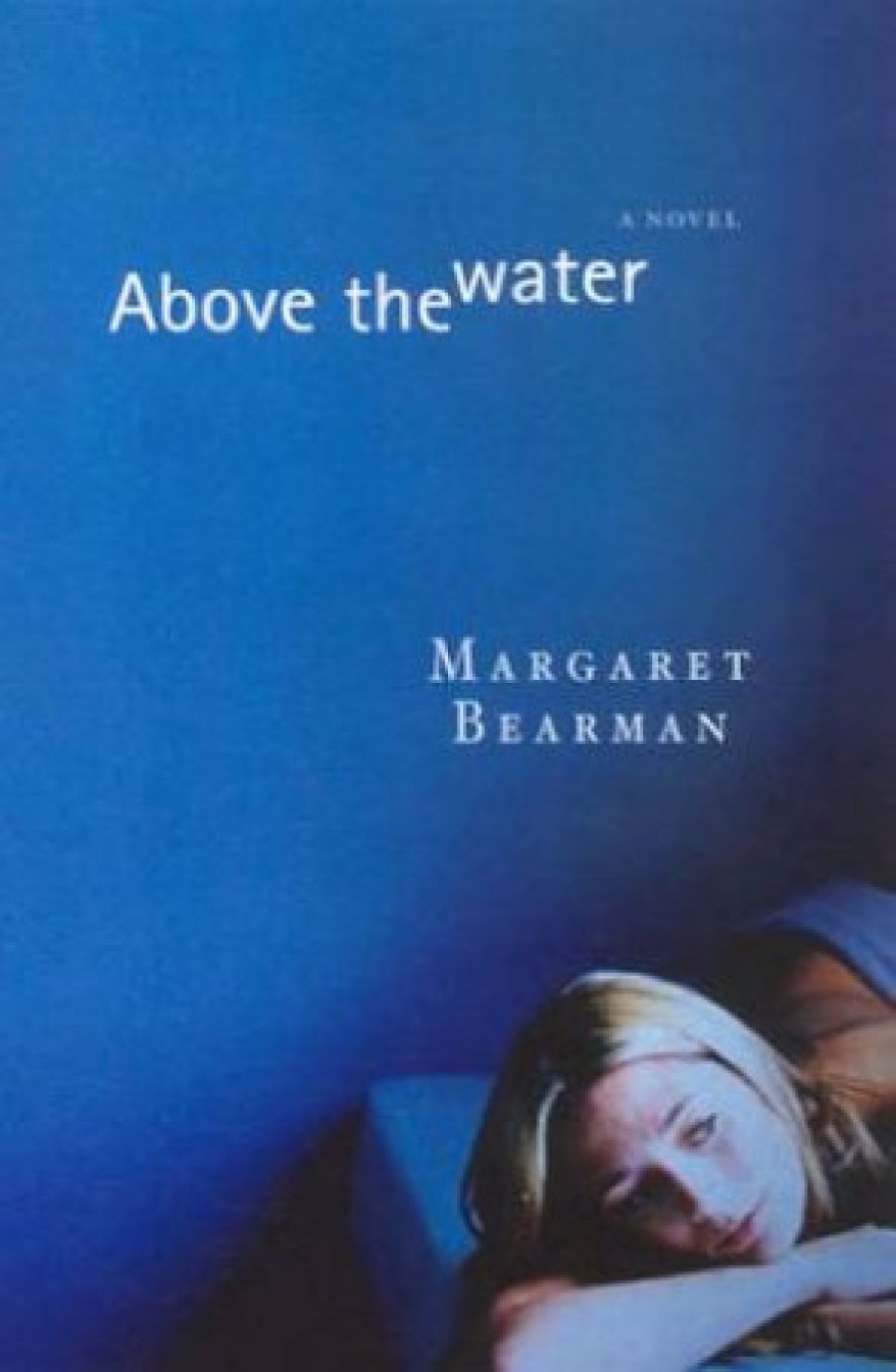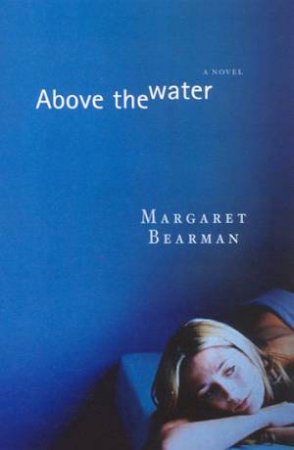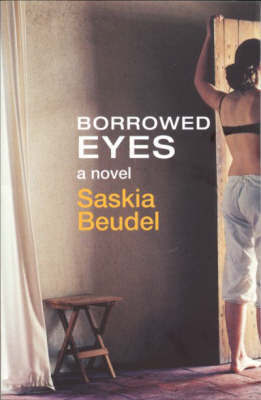
- Free Article: No
- Contents Category: Fiction
- Review Article: Yes
- Article Title: Heads above Water
- Online Only: No
- Custom Highlight Text:
These first novels, both from experienced writers, are two remarkably accomplished works. Although Borrowed Eyes and Above the Water tell very different stories in contrasting styles, the similarities are striking. Both portray a central female character whose life has been damaged by violence. And both deal with loss and memory, physical and emotional scars, and the long journey to healing.
- Book 1 Title: Above the Water
- Book 1 Biblio: Scribner, $21.95 pb, 286pp
- Book 1 Cover Small (400 x 600):

- Book 1 Cover (800 x 1200):

- Book 2 Title: Borrowed Eyes
- Book 2 Subtitle: A novel
- Book 2 Biblio: Picador, $22 pb, 302pp
- Book 2 Cover Small (400 x 600):

- Book 2 Cover (800 x 1200):

Saskia Beudel’s novel is based on a true story. In 1942 twenty-two Australian army nurses and a female civilian were ordered to walk into the sea, where they were machine-gunned in the back by Japanese soldiers. One woman survived – Vivian Bullwinkel. After several hours in the water and three weeks in the jungle, Bullwinkel was forced to surrender. She spent the remainder of the war as a POW in Sumatra. Borrowed Eyes is a fictional retelling of this remarkable story. It is also much more than this. Renaming her character Vivien Carmichael, and drawing on her own father’s recollections of his experiences as a POW during World War II, Beudel has produced a complex book – a layering of fiction, history, biography, diary entries, courtroom transcripts, all undercut by an exploration of a father–daughter relationship.
The story is told in a series of flashbacks. It opens six years after the end of the war. Vivien is back home in Australia. She lives alone in a coastal house and spends her time tending plants in her hothouse, a place of ‘moist decay, of damp ferns and mosses, rotting leaves, and flowering orchids’. Sick of her own memories, she wants to ‘remember someone else’s memories for a while ... to see through someone else’s eyes’ – hence the book’s title. The hothouse is a metaphor for the inescapability of the past. It represents a haven for Vivien, but it is also reminiscent of the Sumatran jungle, a place of pain, fear and suffering.
This self-imposed exile is interrupted by a visit from Martin, a Dutch boy she had befriended and taught to draw when they were interned in the camps. It is Martin’s recollections of their shared experiences that force Vivien to revisit her past, that ‘dull grey spot, muted and muffled’. In his presence, her memory becomes ‘a live slippery thing, furtive as a lump of wriggling mercury’.
The narrative unfolds in snippets and digressions about what really happened in the water and its aftermath all those years ago; ‘the bullet went in the back and came out the front’, we read in the opening paragraph. Sometimes this is frustrating, as the reader yearns for the full story to be told. Yet it is beautifully crafted in its backward and forward shifts, its recollections of the period before the war, of childhood and a father who photographs only landscapes, birds and flowers, never people. When the climactic events – the horrific slaughter of the other women, and the ineluctable guilt of a sole survivor, the nightmare of the camps and the penultimate court case – are finally revealed, it is all the more resonant. These are the facts; these things happened to Vivian Bullwinkel. But it becomes clear that Beudel merely employs the Bullwinkel story as a backdrop to other narratives. Most significant is the blurring of fact and fiction in the characterisation of Martin, who is constantly conflated with Vivien’s father. This allows not only the father’s story to be told, but it also gives rise to an almost epiphanous exploration of the father–daughter relationship.
Borrowed Eyes is full of facts and details; litanies of things: trees, birds, plants and spices are all listed and dissected. Occasionally, it gets bogged down in all this detail, even if the author is aware of this: ‘I continued to insist on my collations and jottings, my haptic and haphazard genealogy of budding, leafing and trivia.’ It is also a book of lovely imagery (‘a raindrop curls the dust up, the way a spider curls up to die’). Beudel, a fabulous storyteller, has used the Bullwinkel story to create a novel of exceptional knowledge and intelligence.
Margaret Bearman’s Above the Water also tells the story of an emotionally scarred woman. Alone in a housing commission bedsit in St Kilda, Samantha Lane compulsively smothers herself with perfume in an effort to mask the past. Something terrible has happened to Sam. Structurally reminiscent of Beudel’s novel, the chapters alternate between past and present. The events that ruined this woman’s life are slowly revealed. Early on, we flash back to the beautiful eighteen-year-old Sam dating the handsome, ambitious Mark. Sam reads the romantic novels of Georgette Heyer, and sees Mark as the handsome prince incarnate. Marriage to Mark will be Sam’s escape from an unhappy home and tedious job, ‘a magic door into another world’. Her life appears deliriously and perilously close to the romantic ideal.
Then the fissures appear. Mark cannot quite clench the big deal that will secure his career and restore his father’s faith, and, although their lovemaking is passionate and tender, he cannot hold Sam in his arms afterwards. Mark also sets out to shape and mould Sam to his ideal female image – she will be an asset to him, beautiful and compliant. She wants to go to university; he wants her to be a model. It is during Mark’s ruthless pursuit of the big deal that we learn of the origin of Sam’s later obsession with perfume: perfume, she is told is, ‘“worse than all that Muslim gear. See, I can tell what a woman is feeling from her smell Sammy. Her innermost emotions. Fear, love, desire. Perfumes hide that.”’ In later flashbacks, we also learn of the horrific act that has shattered Sam’s life and forced her to the brink of madness. Again, as with Vivien, Sam is gently drawn out of her malaise by a significant encounter. In this case, it is with her neighbour Mrs Early, whose son Johnny is a Korean War veteran: alcoholic, phlegmatic and unpredictable. Sam gradually comes to realise that she must confront the past: ‘I did not want to be Johnny. Demons of the past forever cemented to his shoulders.’
If all this sounds depressing, it’s not. It’s savvy, funny and compelling. Bearman creates real characters deftly and economically, conjuring them up in a couple of lines. Here is Sam’s first meeting with Johnny: ‘Dressed in army greens ... burly shoulders filling the room. Gripping his rifle ... Johnny was a short balding man, with a piece of bread and jam in one hand. Grey hair, grey moustache. Over sixty.’ We know these people. Bearman also writes extremely good dialogue, capturing the nuances of speech. It’s not surprising to see that she is a writer of screenplays, and directs theatre and film. I can’t wait to see the film.


Comments powered by CComment